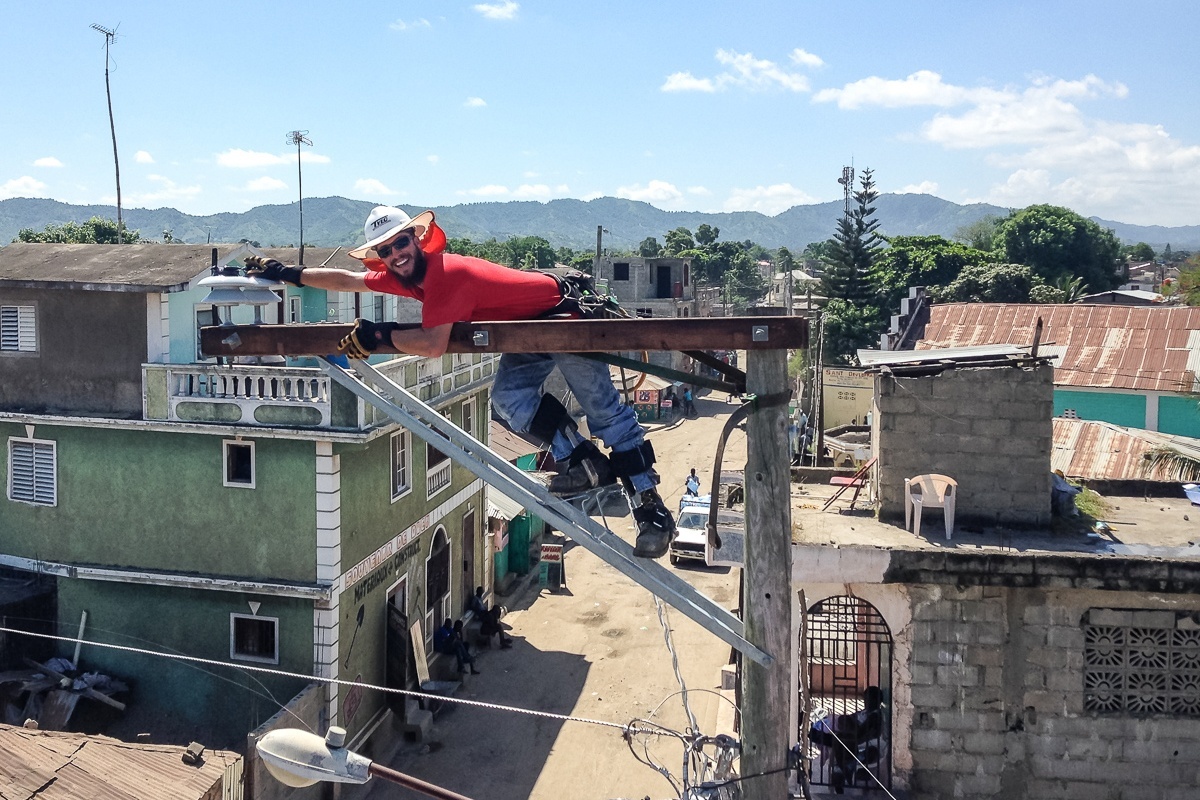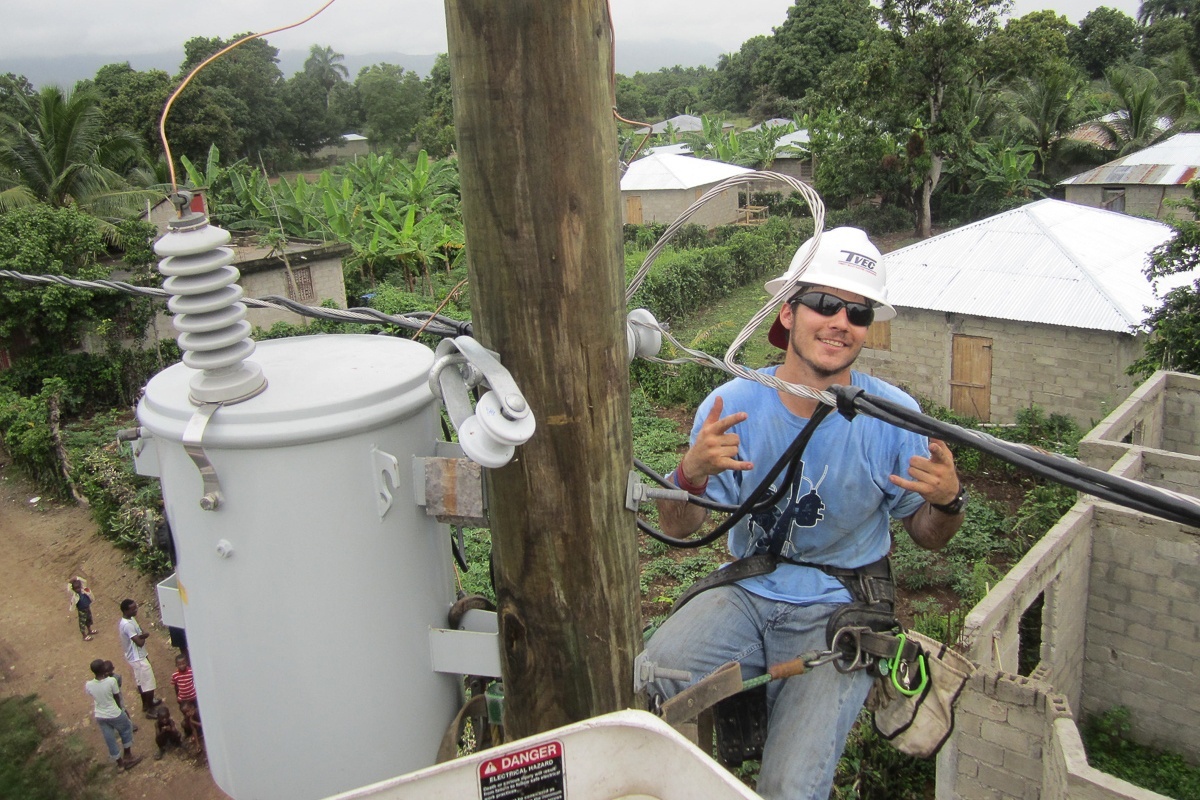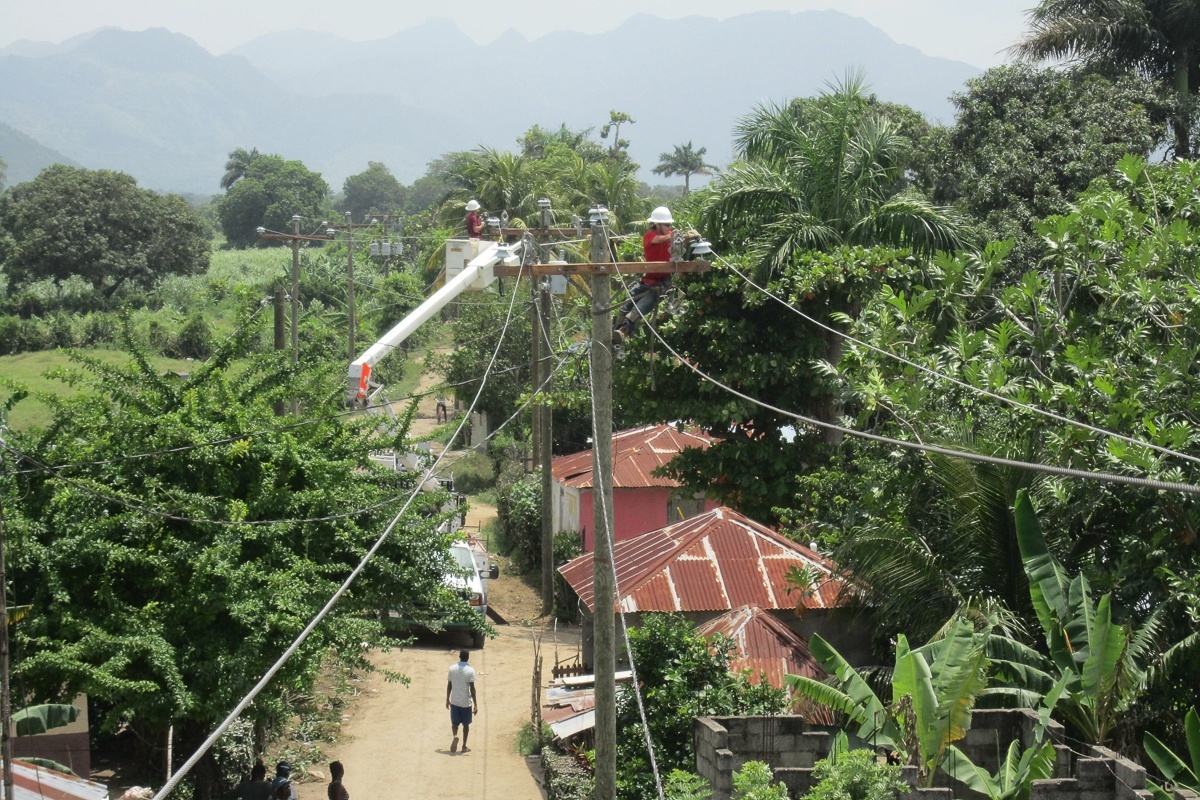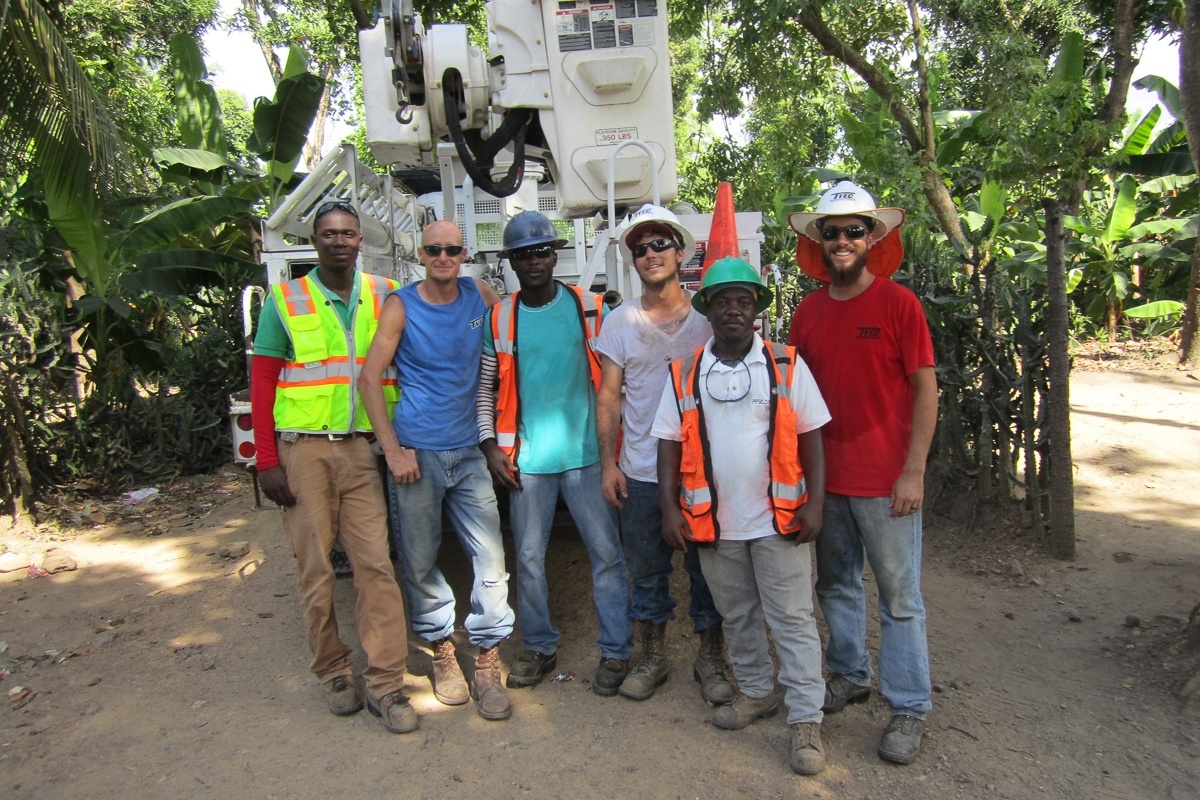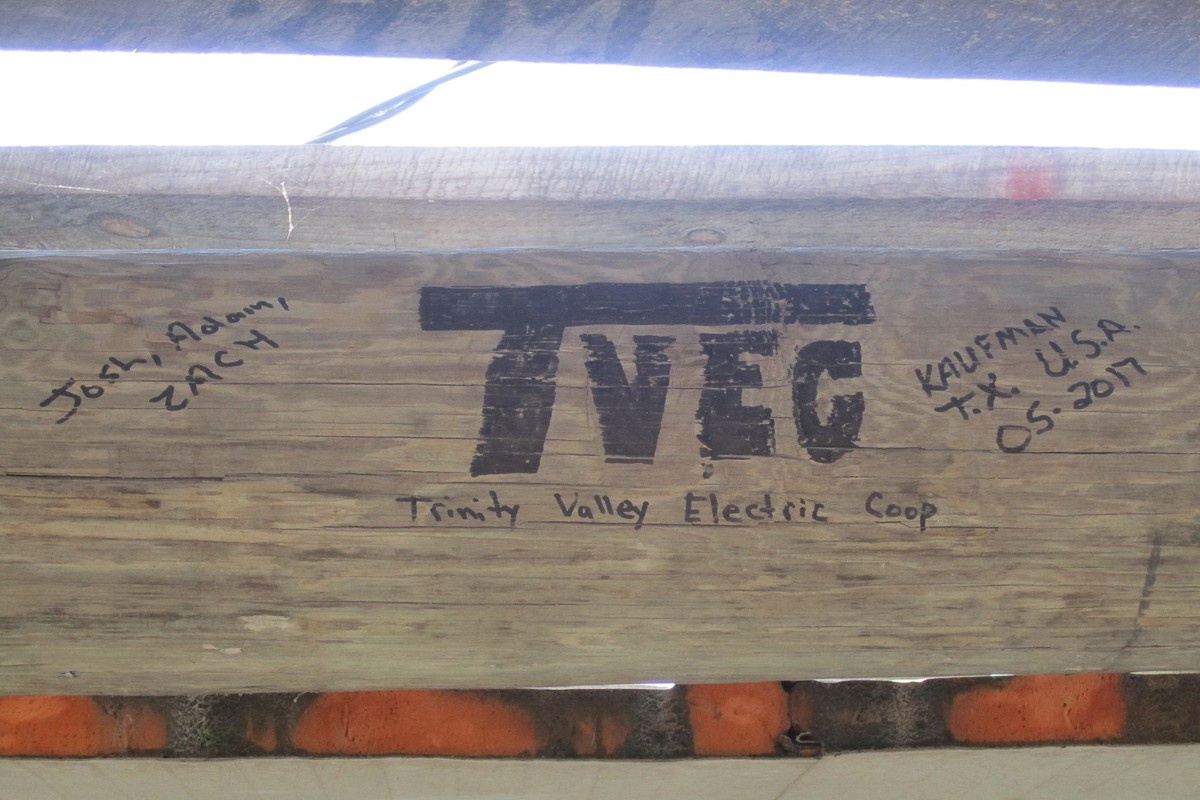Over the course of the last century, the co-op model has proved to be a successful and cost-effective way of providing electrical service to rural areas in the United States. With the help of American cooperatives, the National Rural Electric Cooperative Association has been taking life-changing access to electricity to developing countries.
As part of that effort, three Trinity Valley Electric Cooperative linemen spent three weeks in Haiti, a country still trying to recover from a major 2010 earthquake and routinely ranked among the world’s poorest.
After a few days of working through language barriers and proving themselves to the local lineworkers, Josh Lathem, Adam Wolking and Zach Pollett started to put their knowledge and expertise to work in a big way.
“Their most senior guy has four years of experience … that is how long the project has been there,” Lathem said. “We have a little more than 30 years of experience between us, so there was just a lot that we were able to do and to show them.”
The NRECA project, called Pilot Project for Sustainable Electricity Distribution, serves some 7,000 members, and is one of the few places in Haiti to have electricity 24 hours a day. Power comes from a diesel-fueled generation plant located in a nearby industrial park that houses manufacturing facilities.
Outside the plant, the availability of electricity is changing lives in similar ways to rural electrification in the United States in the 1930s.
“Linemen over there are like rock stars; they are the ones that come and turn the lights on,” Lathem said. “It was amazing to watch them unload off a truck, getting hi-fives from the adults and kids running over. It gathers a crowd and you might have 50 people watching you work.”
While the working conditions and availability of supplies created a few challenges, the overall construction techniques and methods were similar enough that the three Texas linemen could fit right into the crew.
“Being on an island, they sometimes have to wait weeks or even months for supplies,” Wolking said. “They work on things based on what they have available, maybe putting up the poles but then not coming back to add the wires for weeks because they don’t have it. But that makes them efficient … they measure out exactly what you ought to need, and there is absolutely no waste.”
The crew helped lead two major projects, including the addition of service to a well pump for fresh water that has been installed but unusable for years.
Adding their muscle to the effort was helpful, but the biggest impact may come from helping to educate the local lineworkers. Sharing tips and techniques on job sites led to the TVEC crew spending several hours of their last day teaching an impromptu basic electricity class for most of the local workers.
“They don’t have much, and it is hard to get anything on the island,” Pollett said. “But they had the desire to learn as much as they could, it was just amazing.”
Along with their expertise and hard work, Pollett, Wolking and Lathem also took along some gifts: three large bags of personal hygiene items donated by Trinity Valley Community College-Terrell students through the Phi Theta Kappa Honor Society. Lathem noted that, while items like soap, deodorant and toothpaste are available, the cost is out of reach for many Haitians, who make avaerage about $5 per day.
“The way everything has to be imported, something like deodorant can be $20,” he said. “When I opened one of the bags up to show the head lineman, he sat down and nearly cried. We let him distribute one bag to his guys and it was a really big thing for them.”
Of course, the impact went both ways, with the TVEC crew picking up some new words, new experiences and a new perspective on modern life as we know it.
“The whole trip, just being able to help people and building lines to places that never had electricity … Seeing how people respond to that gives you a whole new outlook,” Wolking said. “For them it is a step to a better future, and that is an experience that is hard to put into words. Unless you’ve done that, it is hard to explain.”
“You can’t come back the same person,” Lathem said. “I’ve always thanked God that I was born in America. Now we got the opportunity to go and use the talents and abilities that God blessed us with over there. When you meet people’s needs, you have changed lives, and your life has been changed.”
For more information on NRECA international projects, visit nrecainternational.coop.
